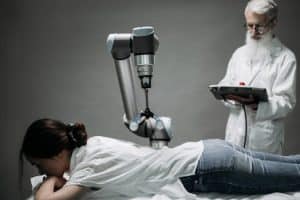Biometric Privacy Officers: Body Data Defenders
In the digital age, our bodies hold a wealth of data. From our fingerprints and facial features to our heart rate and location, biometric data is being collected and used in ways we never thought possible. While this type of data has the potential to enhance convenience and security, it also raises concerns about privacy and protection. This is where biometric privacy officers come in – as the guardians of our body data in the digital world.
What is Biometric Data?
Biometric data is any type of measurable physical or behavioral characteristic that is unique to an individual. This can include fingerprints, facial features, voice patterns, iris scans, and even behavioral biometrics such as gait and typing patterns. It is typically used for identification and authentication purposes, replacing traditional methods like passwords and cards.
The Need for Biometric Privacy Officers
As the use of biometric data becomes more prevalent, so do the concerns surrounding its privacy and security. A breach of this type of data can have serious consequences, as it is irreplaceable and can be used for identity theft or other malicious activities. This is where biometric privacy officers step in, to ensure that our body data is collected and handled in a responsible and ethical manner.
The Role of Biometric Privacy Officers
Biometric privacy officers have a crucial role in safeguarding our body data. They are responsible for reviewing and implementing policies to ensure that biometric data is collected, stored, and used in compliance with privacy laws and regulations. This includes obtaining consent from individuals before collecting their biometric data, ensuring proper security measures are in place to protect it, and establishing protocols for data access and retention.
Moreover, biometric privacy officers also play a key role in educating organizations and individuals about the risks and benefits of using biometric data and the importance of protecting it. They can assist in creating privacy impact assessments and conducting audits to ensure compliance and proactively address any potential privacy issues.
The Challenges Faced by Biometric Privacy Officers
The job of a biometric privacy officer is not an easy one. The rapidly advancing technology, lack of clear regulations, and the rising concerns over privacy and security make it a challenging role. On top of that, biometric data is highly sensitive and can be used for purposes beyond its original intention, making it difficult to control and monitor.
Additionally, there is a lack of awareness and understanding about the importance of biometric privacy officers in many organizations. This often leads to insufficient resources and support for their role, making it difficult to fulfill their responsibilities effectively.
In Conclusion
Biometric data is the next frontier in the digital world, with its potential to revolutionize how we authenticate and identify ourselves. But with great power comes great responsibility, and the need for biometric privacy officers is now more important than ever. These data defenders ensure that our body data is handled with utmost care and respect for our privacy. As the use of biometric data continues to grow, we must recognize the crucial role of biometric privacy officers in safeguarding our most sensitive information.










